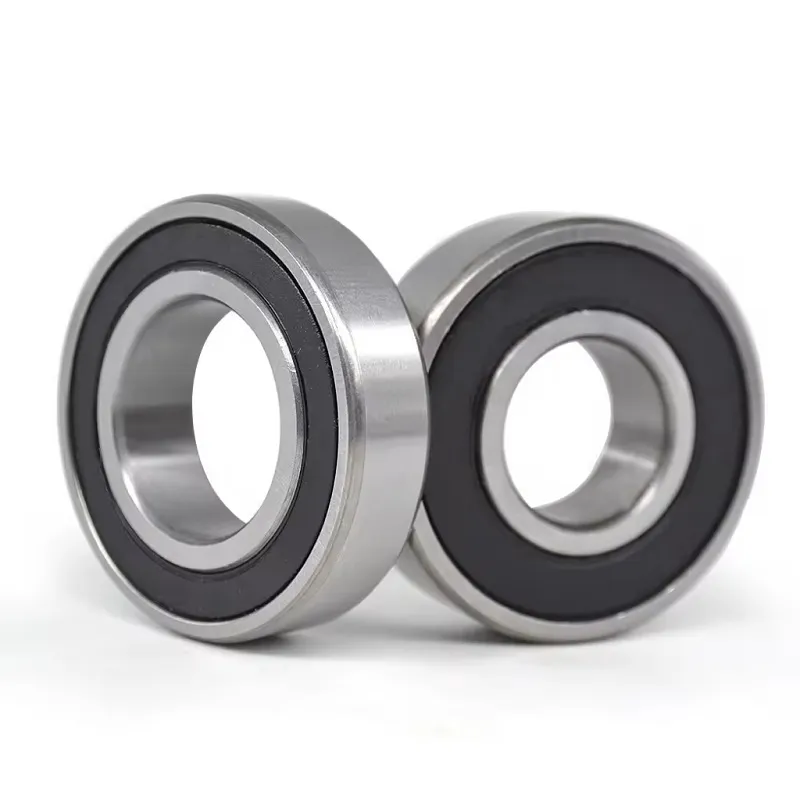Aug . 11, 2024 15:22 Back to list
Understanding the Importance of Proper Bearings in AC Fan Motors for Optimal Performance
Understanding AC Fan Motor Bearings Importance, Types, and Maintenance
AC fan motors are essential components in various applications, from residential cooling systems to industrial ventilation setups. At the heart of these motors are the bearings, which play a crucial role in ensuring smooth operation and longevity. This article delves into the importance of AC fan motor bearings, the different types available, and tips for maintaining them to enhance motor performance.
The Importance of Bearings in AC Fan Motors
Bearings serve to reduce friction between the rotating motor shaft and stationary parts, allowing for efficient movement. In AC fan motors, proper bearing function is critical for the following reasons
1. Efficiency Bearings minimize resistance, enabling the motor to run smoothly. This efficiency translates into lower energy consumption and, consequently, reduced operational costs.
2. Longevity Quality bearings extend the lifespan of the motor by supporting consistent performance and minimizing wear and tear. Regular maintenance of these bearings can further prolong their life.
3. Noise Reduction Worn or improperly lubricated bearings can lead to increased noise levels. Good-quality bearings operate quietly, enhancing comfort in residential and commercial settings.
4. Vibration Control Effective bearings help in minimizing vibrations, which can lead to motor failure over time. By maintaining balance and alignment, they ensure that the motor runs steadily without causing system disturbances.
Types of Bearings Used in AC Fan Motors
There are several types of bearings commonly used in AC fan motors, each with specific applications and benefits
1. Ball Bearings These are the most common type of bearings used in AC fan motors. They consist of balls placed between two rings (inner and outer) and are suitable for high-speed applications. Ball bearings are efficient, have low friction, and can handle radial and axial loads.
ac fan motor bearings

2. Roller Bearings These bearings utilize cylindrical rollers instead of balls, which can handle heavier loads longer than ball bearings. They are effective in applications where there is high radial load, but they generally operate at lower speeds compared to ball bearings.
3. Sleeve Bearings Also known as bushings, these are simple, cylindrical components that allow for the sliding motion of the motor shaft. Sleeve bearings are often used in applications where noise reduction is essential, though they may not support as high speeds or loads as ball or roller bearings.
4. Magnetic Bearings These are advanced bearings that use magnetic levitation to support the shaft without physical contact. They are best suited for high-speed and precision applications, but their complexity and cost can be prohibitive for standard AC fan motors.
Maintenance Tips for AC Fan Motor Bearings
Proper maintenance of AC fan motor bearings is vital for ensuring their performance and extending their lifespan. Here are some essential maintenance tips
1. Regular Inspection Periodically check for signs of wear, such as noise, vibration, or unusual heating. Look for grease leaks or debris accumulation that could affect bearing performance.
2. Lubrication Ensure that bearings are adequately lubricated. Use the manufacturer-recommended lubricant, and replenish it as per the maintenance schedule. Over-lubrication can be just as damaging as under-lubrication.
3. Environmental Conditions Pay attention to the operating environment. Excessive dust, humidity, or temperature can negatively impact bearing performance. Keep the surroundings clean and ensure proper air circulation.
4. Alignment and Installation Properly align and install bearings during maintenance or replacement. Misalignment can lead to premature failure and decreased efficiency.
Conclusion
AC fan motor bearings are critical components that directly influence the performance, efficiency, and longevity of the motors. Understanding the types of bearings available and adhering to regular maintenance practices can significantly enhance motor operation. By prioritizing bearing health, users can ensure their AC fan systems operate efficiently and effectively for years to come.
Latest news
-
25MM 2 BOLT UCFLX05-14 Flange bearing unit( oval)
NewsMar.07,2025
-
4 bolt UCF 200 series Pillow block bearings
NewsMar.07,2025
-
25MM 2 BOLT UCFLX05-14 Flange bearing unit( oval)
NewsMar.07,2025
-
UCF216-50 4-Bolt Flange Housing Square Bearing
NewsMar.07,2025
-
25MM 2 BOLT UCFLX05-14 Flange bearing unit( oval)
NewsMar.07,2025
-
spherical roller bearing material exporter
NewsMar.07,2025





